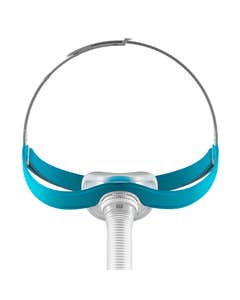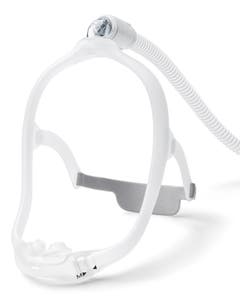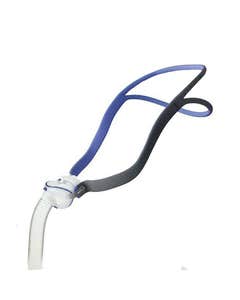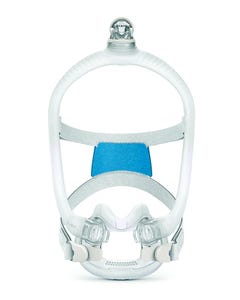How to Sleep Better While on CPAP Therapy
What Is CPAP Therapy?
Even if you are on CPAP therapy, there are other things you can do to help make your evening conducive to a better night’s sleep and your sleep more comfortable. The study of sleep has been expanding rapidly, leading to much new research and innovative products that are available to help get you the sleep you deserve. Even if your CPAP machine is your first defense, many of these products and tricks will supplement its use.
Think of your bedroom as a stay-well room. It is room to recover and relax from a long, stressful day at work or after trying to keep up with kids. Remind yourself that sleeping helps the body to heal and reinvigorate itself so you can do it all again the next day. Because sleep is so important to the quality of life issues, these pioneering products and ideas could help anyone enhance their sleep.
Enhance Your CPAP Therapy with The Following:
Melatonin
It is the key to sleep. It stabilizes your sleep and wakefulness patterns by regulating the chemicals in your body that make you feel either drowsy or alert. Melatonin is not like a sleeping pill but it is necessary for quality sleep. Here are a few foods which help to increase your Melatonin levels: raspberries, almonds, sunflower seeds, tart cherries, flaxseeds, and strawberries.
Aromatherapy
New to the area of CPAP therapy, aromatherapy has been around for centuries. Now you can add aromatherapy to CPAP adding a soothing, calm atmosphere during therapy.
Lighting
Much research has been put into studying lighting and its effect on the body. Sunlight has been correlated with reducing blood pressure, reducing heart attack and stroke risk, and even prolonging life. Even before you wake, light begins waking your brain. Room lighting should be regulated so that it does not disrupt melatonin secretion. Some new types of lighting include:
Advanced Room Lighting which improves the sleep/wake cycles by assisting in the regulation of melatonin production.
Wake-Up Light Therapy which is great for travelers as it emits short periods of blue-shaded lighting to increase energy and reverse the effects of jetlag.
Night Lighting makes use of small LED lamps to illuminate pathways at night, so it does not disturb melatonin levels. For a more decorative and striking light, try a red nightlight. Red light is least likely to suppress sleep-initiating melatonin, an International Journal of Endocrinology study found.
Dawn Simulator Alarm Clock
Instead of waking to a horn or your favorite radio morning show, try a Dawn Simulator Alarm Clock. These clocks gradually awaken the body instead of startling it first thing in the morning. If money is no object, install a shower infused with Vitamin C. Yes, they exist! Shower water infused with vitamin C helps to neutralize chlorine and promote healthy hair and skin…and a refreshing morning shower.
Purification Systems
Air Purification systems can be necessary for people who are sensitive to allergens, pathogens, and toxins in the air. Most advanced HEPA-standard air purification system improves air quality which leads to better breathing and fewer congestions. Water Filtration Systems reduce minerals, byproducts, chlorine, and pesticides. Although a water filtration system is not directly related to sleep, it will aid in overall health. If neither is within reach, try duct cleaning to improve air quality and a water dispenser to remove harmful chemicals.
Bedroom Ideas
Research for Japan states that 50% humidity equals the optimal melatonin release. Gauge the humidity levels in your bedroom at bedtime and in the morning with a hygrometer. It will help you understand how ambient humidity changes during the night. If it is too dry, use a humidifier with an automatic off-and-on switch in order to hit the optimal humidity levels. However, if it is always too damp, you will need a dehumidifier with auto shut-off. For CPAP users, heated humidification will provide instant optimal humidification levels and help reduce dryness and congestion.
Reason Behind Your Bad Sleep While Using CPAP Therapy
Impact of Technology on Sleep
Technology is not only invading our workplace, but it is also beginning to creep into the bedroom. With smartphones and tablets becoming the norm, a study in Applied Ergonomics found that two hours of tablet time can significantly reduce melatonin levels compromising sleep. Try turning it off at least an hour before bedtime.
Wearing Your CPAP Mask in The Wrong Size or Way
Wearing the wrong size mask can lead to air leaks and general discomfort. It can take time to find the right fit when it comes to your CPAP mask. Follow the instructions that come with the mask, especially when it comes to adjusting the mask to your face size and shape. Also be sure to select the right size when you purchase. Sizing guides are usually available for helping you select the right size mask.
Stuffy or Dry Nose
A stuffy or dry nose from CPAP therapy can be annoying and can lead to lack of use. Instead of giving up on therapy look into using a humidifier with your CPAP machine or heated tubing to help moisten and warm the air to help prevent nasal issues. You will notice right away when CPAP is more comfortable.
Dry Mouth
Dry mouth is a common problem with CPAP users. Usually those who are mouth breathers experience this side effect. As your mouth hangs up it tends to get parched. Try using a full face mask, which covers both the nose and mouth during CPAP therapy. This approach will reduce dry mouth, simply by keeping your mouth closed while you sleep.
Removal of The Mask During the Night, Unintentionally
An uncomfortable mask is the primary reason a new user will take their mask off at night, usually unconsciously. Make sure you adjust the mask properly and follow the instructions closely for fitting the mask to your face shape and size. A more comfortable mask will remain on your face for the night.
Problems Tolerating Forced Air
Another issue commonly experienced by new users is getting used to breathing forced air while they sleep. Some users can try auto-ramp features on their CPAP machines to help ease them into breathing pressurized air. Other options include BiPAP machines which help adjust pressurized air during exhalation, which can be the most difficult.
Not Habituated with Wearing the CPAP Mask
It can be difficult adjusting to wear a mask while you sleep. Many new users may give up on therapy because they do not like the mask, which impacts their sleep apnea treatment. Take time to get used to wearing the CPAP mask. Try wearing it before bedtime while watching TV or reading so you become better accustomed to its presence while you sleep.
Tips for Enhancing CPAP Therapy for Better Sleep
Easy Adjustments to Your CPAP Mask
Make simple adjustments to your CPAP mask such as adjusting headgear so that you feel a secure but comfortable fit. Check for leaks and make sure that the hose is connected and free of cracks. You can also try different types of CPAP masks to find the one that best fits you.
Avoid Alcohol Consumption
Although a glass of red wine has been proven to be beneficial to health, avoid alcohol right before bed. Alcohol is a muscle relaxer that relaxes your throat muscles which contributes to snoring. This could impact CPAP pressure needs and reduce the overall quality of sleep you receive.
Start Using a Firm Mattress
Mattress type is a personal preference. However, if you are in the market for a new one, according to Michael Decker, Ph.D., a Georgia State University sleep researcher, test them by lying in your normal sleep position for 15 minutes, ideally with your bedmate. Also, pick a mattress firm enough to support you but without any pressure points. To further reduce irritants, use mattress and pillow covers to block sleep-disrupting dust mites and pet dander.
Use The Auto Ramp Feature in Your CPAP Machine
The Auto Ramp is a useful feature, especially for new users. It can start you off on a more comfortable pressure setting and then as you fall asleep ease into the prescribed setting that you need to manage your sleep apnea. Make sure your CPAP machine has an auto ramp feature if you have difficulty falling asleep with your CPAP therapy.
Consider Using a CPAP Humidifier If Your Throat or Nose Is Dry
Most of the annoying side effects of CPAP therapy such as a dry nose or throat are due to the extra dry pressurized air coming from the CPAP machine. Adding a humidifier to your CPAP system can infuse the dry air with moisture and reduce dry nose and throat issues.
More Questions About How to Enhance CPAP Therapy?
The CPAP Shop is committed to enhancing the lives of people with sleep apnea through information and high-quality therapeutic products. If you have questions about CPAP therapy, please call (866) 414-9700. Or, you can contact us through our website at www.theCPAPshop.com. We offer assistance before, during, and after the purchase of any product, and can also help you choose items that best suit your needs.
This post was originally posted on January 13, 2021, and updated on January 11, 2023.








